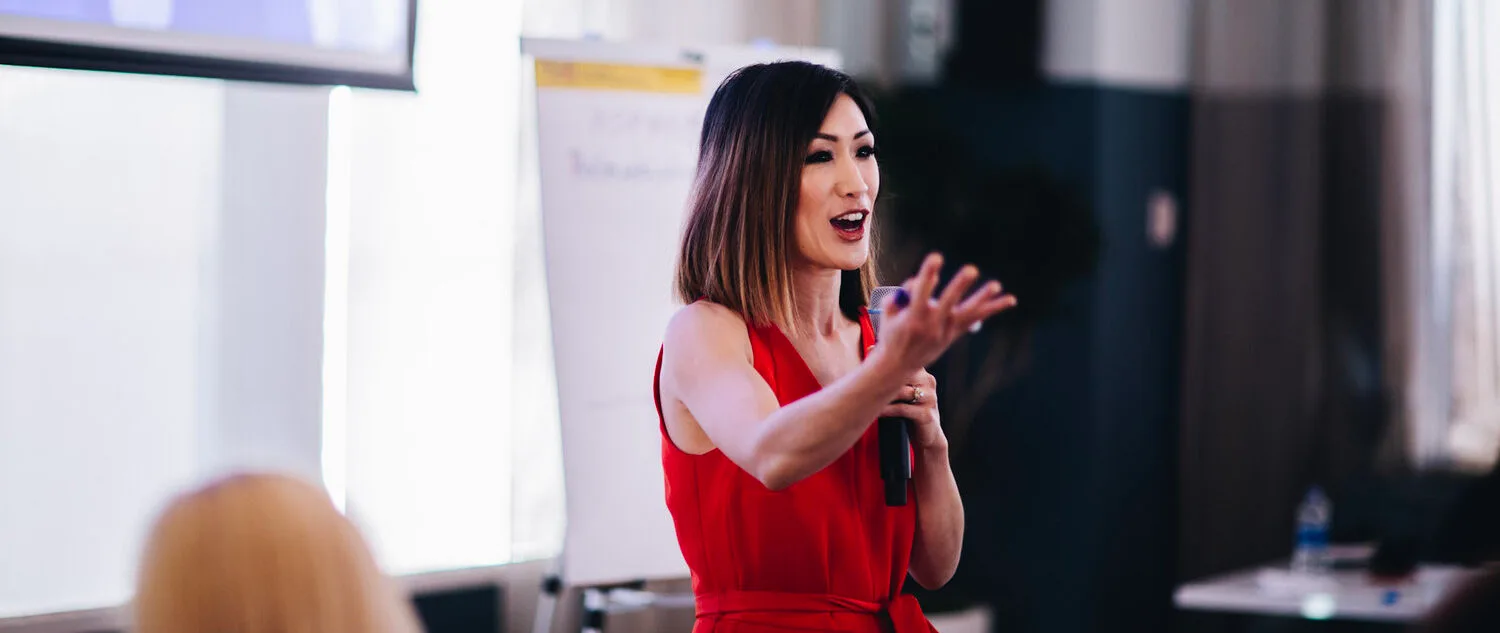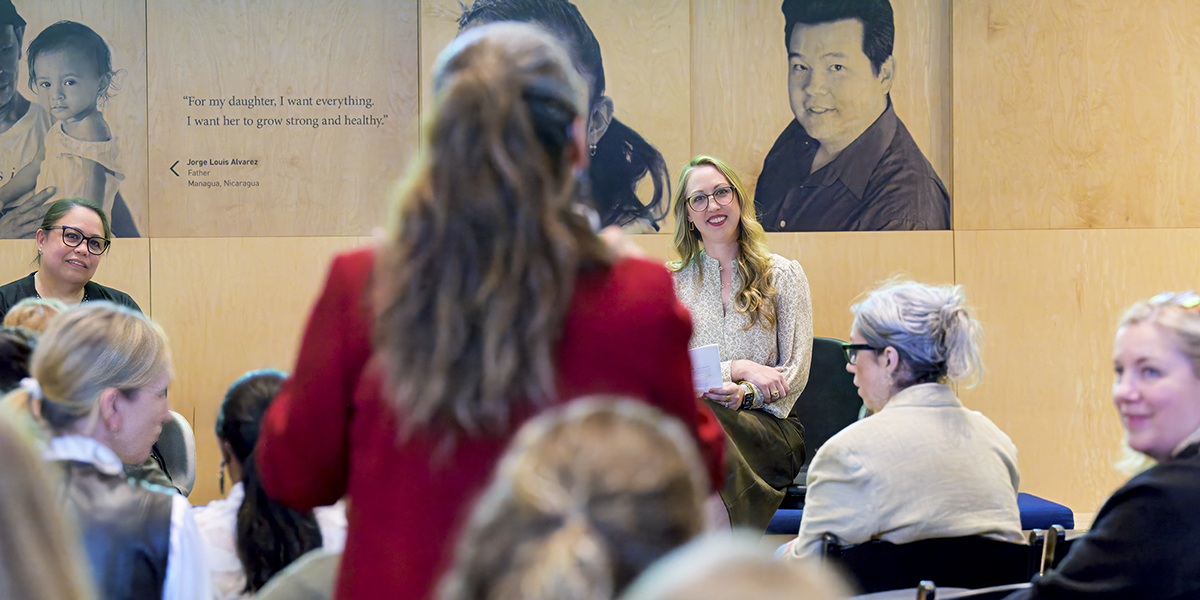Written by: Dr. Renee St. Jacques
I believe that Emotional Intelligence can change the world.
Consider for a moment the most formative experiences of your life. Often these are quite painful—your parents’ divorce, the death of parent or a sibling, an abusive relationship or a trauma, mistreatment by a boss.
Now consider the key player(s) in that formative experience. How high is their emotional intelligence? Often the answer is “not high.”
And oh, how different things would have been if it was high.
That emotionally absent father who did not know how to father because he never had it modeled for him. The controlling mother who never knew how to take ownership over her mistakes. That toxic manager. The insensitive colleague. That abusive ex.
Hurt people hurt other people.
Whoever the person was, whatever the situation was, chances are that under those hurtful words and behind the dysfunctional behavior is low emotional and relational intelligence. The lack of skill in perceiving, understanding, and managing emotions and feelings or handling interpersonal relationships judiciously and empathetically. Many times, this occurs because they never learned how to.
Now let’s relate this to work. As much we may think that our past and our personal problems stay at home, they largely do not because we are contextual and holistic as people. And, people are essential to work. Those formative past experiences and issues shape the way individuals show up in the workplace.
I have coached many individuals whose past trauma alter their self-perception or cause them triggering experiences that remind them of past treatment and greatly hamper their confidence and success at work. Alternatively, I have also coached clients who have incredible IQ and business intelligence; however, their careless actions and lack of attunement to people’s needs breeds unhealthy team culture and greatly reduces their leadership effectiveness.
In other words, those with low emotional intelligence in the workplace perpetuate cycles of hurt people hurting other people.
When will this “sick cycle” stop?
I first asked myself this question at a young age when I witnessed my parents’ marriage falling apart. There was emotional cut off, silent treatment. Codependency. Addiction. Manipulation and emotional abuse. Lying and cheating.
Like many people, I grew up in a home where emotions and feelings were not valued or validated. And they certainly were not comforted.
In the emotional tumult, my young heart ached with confusion and I felt powerless. So as an insecure kid, I numbed by becoming extremely studious and adopting a strict work ethic. I was hurting alongside my family members, but we never talked about it. Maybe by not talking about the problems and the pain, it would all go away.
Slowly I began to grow in self-awareness. At the earliest age, I became a researcher and a student observing hurtful behaviors and dysfunctional patterns at play throughout my broader family system. In my observations, I began to grapple with the pieces to gain clarity.
Intellectual understanding about what was happening in my family empowered me with a sense of self-agency and control in the painful chaos. What would it take for me to choose another trajectory for myself and my future family as well as help others find a better path for themselves?
It was a long and continuous journey to pursue my own healing and growth, but this passion for emotional, relational and mental health stayed with me as I began my career in corporate America in technology marketing and business.
And there it was again.
In the workplace, I again observed patterns of emotional immaturity and low emotional intelligence. Individuals struggling to manage their feelings under pressure, not giving or receiving feedback, avoiding conflict, blame-shifting. Unhealthy team culture dynamics due to gossip, mistrust, siloed work and lack of collaboration. Managers that didn’t listen.
I learned of studies on the workplace that confirmed the value of emotional intelligence. Employees with higher EQ scores also rate higher on measures of interpersonal functioning, leadership abilities, and stress management. According to one survey of hiring managers, almost 75 percent of respondents suggested that they valued an employee’s EQ more than their IQ. Research even revealed a definite relationship between emotional intelligence and organizational productivity and annual profit growth.
Emotional Intelligence often takes a backseat to short-term tactical execution to deliver on the bottom line. However, failing to cultivate emotional intelligence, which empowers people to effectively lead through growth, conflict, change and culture, that bottom line ultimately suffers.
“Emotional intelligence emerges as a much stronger predictor of who will be most successful, because it is how we handle ourselves in our relationships that determines how well we do once we are in a given job.”
– Daniel Goleman, psychologist and author who was one of the first to coin the word “Emotional Intelligence”
As my interest in my job waned and dissatisfaction grew, I recall sitting across from a senior executive as a product manager during a monthly business review and thinking to myself, “I don’t care about this product, this business, this work. I would much rather speak to this executive about his holistic life. How his home life impacts his work. His leadership style. The way he handled that last reorg. The culture he’s building here.”
So it hit me: I want to be in the business of people.
And so, I made the courageous leap to pursue my doctorate in Psychology. To stay in corporate America in traditional business roles would only allow me to pursue half of who I am.
Now as a licensed psychologist and an executive coach, I am delighted to bring my whole self to meet my clients’ needs at the intersection of psychology and business. The doctorate equips me with the mental health and human behavior expertise to be uniquely positioned to coach and truly help people increase their emotional intelligence to reach their workplace potential. This has been the fulfillment that I have longed for. I get this beautiful privilege of helping people change the way they live so they can live their best lives at home and…at work.
ABOUT DR RENEE ST JACQUES
Licensed psychologist and exec coach Dr. Renee St Jacques is a unique hybrid of human behavior expert and corporate professional, equally compassionate while results-oriented. Her deep experience with technology marketing and product management give her the senior-level perspective to understand the business issues that her clients face daily, while her extensive doctoral training in psychology offers her the intuition and expertise to help support her clients’ workplace relational and emotional intelligence needs.
Dr. Renee St Jacques will be leading an interactive session on “Increasing your Emotional Intelligence” on January 25, 2020 at the Women in Cloud Summit 2020.
References:
https://www.verywellmind.com/utilizing-emotional-intelligence-in-the-workplace-4164713
http://www.eiconsortium.org/pdf/Bharwaney_BarOn_MacKinlay_EQ_and_Bottom_Line.pdf








0 Comments